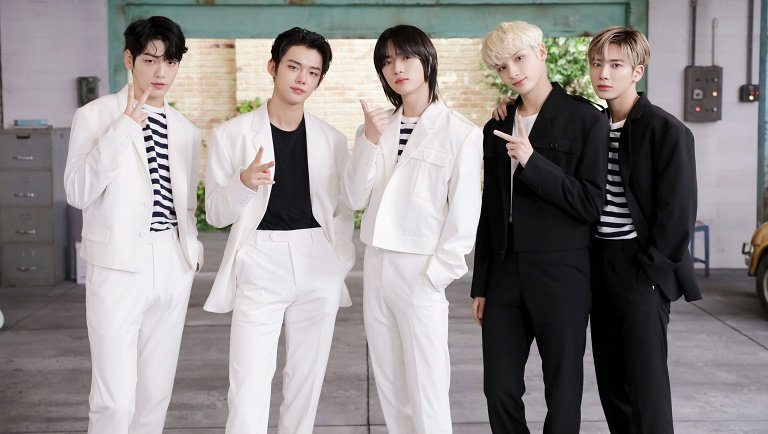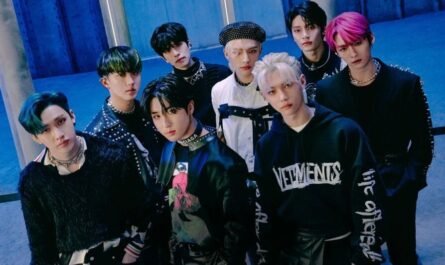Kim Young-Dae, a music critic, gave a lecture on the topic of ‘How K-Pop Conquered the World’ at the 422nd Saeol Morning Bed held at the Sheraton Grand Hotel in Incheon by the Saeol Cultural Foundation on the morning of the 10th.
Kim Young-Dae, a critic, entered widespread music criticism in 2006 by participating as a co-author of ’50 Alums that Brightened the 1990s’.
Since then, he has covered stories about BTS as well as Korean hip-hop, idols, and Korean musicians, drawing attention from the world as Korea’s top BTS expert and K-pop commentator, along with Psy’s Gangnam Style’s global hit in 2012 and BTS’ global idol status. a person who does
Below is a summary of Kim’s lecture on the 10th.
“The Korean Wave has great meaning in itself”
K-pop is a term for Korean popular music. It is a compound word derived from the English first letters of Korea and popular music.
Pop is a branch of popular culture. It started mainly in the United States. After the word K-pop was coined, it became a format with a mark to distinguish each country to reflect its characteristics.
Critic Kim commented, “We habitually say that we live in the K-Pop and Hallyu era. Still, when the word Korea appears, I think passively.” He said, “I always think of Korea as a weak country and tend to lower Korean popular music.”
He continued, “The word pop used to refer to music from the United States and the United States. In the past, people who listened to music were people who enjoyed foreign music (pop). Now, things have changed,” he said.
He continued, “K-pop and Hallyu are beyond the level where we can talk about how much our products are selling in the United States. It already has a lot of meaning in itself,” he explained.
“The essence of K-pop is cultural technology.”
Psy’s Gangnam Style is the first case where K-pop has been globally recognized. Since then, K-pop has grown to the point where it has been called the K-pop boom. From the end of 2015, a chart was organized separately for K-pop genres on overseas music sites.
Critic Kim said, “We need to understand the essential flow of K-pop within the global cultural landscape.” “It has been ten years since Psy’s Gangnam Style came out. At first, when it was popular in the United States, Koreans couldn’t believe it, so it didn’t even become news.”
“At the time, I was studying in the United States. He has never contributed to one press. The topic was America’s reaction to Psy’s Gangnam Style. After posting, the reaction in Korea changed little by little. BTS went through a similar situation,” he added.
Critic Kim cited technology as one of the important reasons for K-pop’s success. In the meantime, he cited SM Entertainment’s executive producer Lee Soo-man as an example.
Critic Kim commented, “Producer Lee Soo-man is 70 years old and is an active producer. He directly dictates the music vision and even the angle of the music video camera,” he explained.
He continued, “At first glance, the word “cultural technology” seems familiar. But if you think about the meaning of the word, it is like warm ice. It is an adjective contradiction,” he said.
“Culture and technology are different fields,” he said. Culture cannot be controlled entirely. But the technology is different. Cultural skills are an expression of being able to put the unpredictable culture into the realm of control,” he added.
Critic Kim commented, “Producer Lee Soo-man said that he would standardize culture with the word cultural technology. It is the transformation of culture into a conveyor belt and systematization of culture,” he said.
“Soft landing of K-pop through localization”
Critic Kim picked localization as one of the artistic techniques of K-pop. Critic Kim said, “Localization of K-Pop is a concept that I have been thinking about for 20 years. “Localization is now at the last stage,” he said.
He continued, “Korea has a smaller domestic market for popular music than Japan. The first place in the domestic music market is the United States, and the second is Japan. The US is overwhelming, but the gap between the second and third place is huge. It is one of the factors that led K-pop to enter the global market earlier than J-pop.”
Critic Kim said, “Currently, K-pop (Korean Wave) is part of a plan that has been in place for nearly 20 years. It can be divided into three stages,” he explained.
He continued, “The representative musician in the first stage is BoA. BoA was a K-pop singer in Korea and a J-pop singer in Japan when she initially debuted. It was possible through elaborate training.
Critic Kim said, “The representative musicians in the second stage are Blackpink and Girls’ Generation.” “Blackpink’s ‘Lisa’ is Thai. Because of this, Blackpink has sometimes been considered a more popular group than BTS in Thailand. Thai people feel sympathy with Blackpink through Lisa.”
“The same goes for the North American market,” he said. The presence of Tiffany in Girls’ Generation makes people in North America feel close to how they see Girls’ Generation. The same goes for Twice. We achieved localization by mixing Korean, Chinese, and Japanese members.”
Critic Kim said, “It can be said that they practiced steps 1 and 2 with step 3 in mind. I only work in Japan and have never come to Korea. But if I had to pick a music genre, it would be K-pop. There are many opinions that it is similar to Twice. I practiced with Twice,” he said.
“Unique K-Pop training system”
Critic Kim saw K-pop’s training system as the core of cultural technology. He declared that no other country could easily imitate.
Critic Kim commented, “In the past when it was rumored that a certain area was good at singing, I went directly to casting. He said, “It’s different now,” he said, “and invested capital in people who were good at it.” They see the star, recruit them early, make products, and put them on the market.”
He continued, “We call this the K-Pop training system. They train for as little as 3 to 4 years and 7 to 8 years.
He continued, “The recognition that Korean stars create outstanding talents is not that they have outstanding talents in the first place. However, it is not easy to learn right away.” “Korea has accumulated know-how for 20 to 39 years. No other country can imitate it. Korean agencies sometimes sell training systems, but they hide the core technology,” he added.
Meanwhile, critic Kim also cited K-pop’s aesthetics, statelessness, and hybridity as factors for K-pop’s success.











